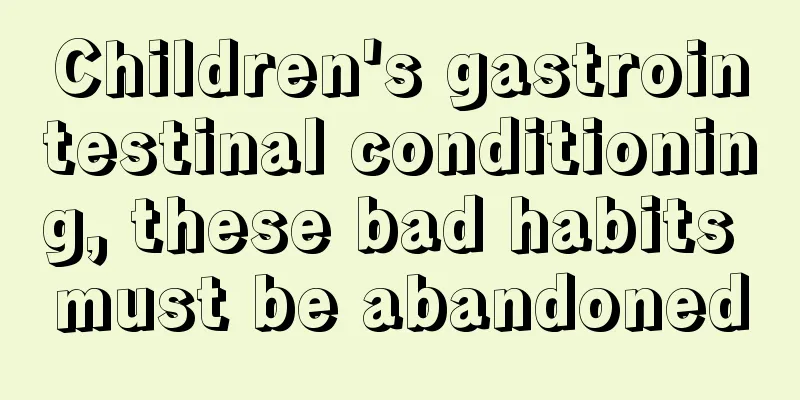Symptoms of colic in babies

|
Many people who have taken care of children know that infants and young children can also experience colic. Since infants and young children cannot express themselves, once they have colic they will cry incessantly, be unwilling to sleep or eat, which makes adults very worried. At this time, as a guardian, you need to determine why the infant or child has colic, determine the symptoms of colic, and then solve the problem accordingly to alleviate the impact of the pain on the baby. Symptoms of colic in babies Once colic occurs, the baby will often have recurring abdominal pain and crying. The symptoms are better during the day, but in the evening or at night, there will be sudden and irregular crying, and the crying will continue for three or four hours. No matter what efforts are made, it is difficult to make him calm down. Most infants with this condition will experience restlessness, flushed face, curled knees, and fist-clenched and kicking legs. They often have abdominal distension, also known as "wind," which will not be relieved until the rapid intestinal peristalsis disappears or the gas is discharged. Usually the baby will calm down after a few hours of the attack. The four major symptoms of baby colic: 1. Crying and restlessness. 2. Red face. 3. Knees pulled up. 4. Clenching fists and kicking feet. How to relieve infant colic Breastfed babies are less likely to suffer from colic. In terms of infant diet, breast milk is recommended. According to research statistics, babies who drink breast milk are less likely to have colic, because babies who are allergic to milk protein may experience intestinal discomfort and aggravate colic symptoms. Of course, breastfeeding mothers should also be careful not to consume irritating or allergenic foods, such as caffeinated beverages, milk and nuts. The alarm was lifted after 6 months of age. Colic varies in severity. Some may resolve naturally after a few weeks, but some may last until the baby is six months old. It is a heart-wrenching experience for parents. Parents are reminded not to use too much force when comforting their babies to avoid causing shaken baby syndrome and brain bleeding. The above article introduces the symptoms of abdominal pain and colic in infants and the correct care methods. New parents can learn this. Although infant colic is common, it causes great physical pain to the baby. Parents may wish to judge which part of the baby's body is uncomfortable based on the baby's crying, and take corresponding care measures. |
<<: Symptoms of colic in a one and a half year old baby
>>: Will otitis media in children heal on its own?
Recommend
Why is the newborn's voice hoarse when crying?
The first thing a newborn baby does after birth i...
Can babies take probiotics and get vaccinations?
Parents are very considerate of their babies. In ...
What are the standard height and weight charts for 1-year-old babies?
When the baby is growing, the standards for each ...
What to do with a spoiled child
Parental education is very important to the devel...
Can children's earwax be removed?
When children are young, they usually like to mov...
What should I do if my baby has red stools?
This situation in which babies have red stools du...
What is the cause of blue spots on the baby's body?
Nowadays, every child is the treasure of the fami...
The reasons and solutions for babies crying
In addition to pregnant women being the most magi...
Why do children's eye bags turn purple?
Children's eyes are generally delicate, espec...
What to do if your child has low muscle tension
Low muscle tone is very common in children, but w...
What should I do if my child has a fever for 5 consecutive days?
It is common for children to have a fever, but co...
What should I do if my baby has a fever of 38 degrees?
Children are prone to illness during their growth...
Why does the child lose his breath when he cries?
It is very common for children to cry in daily li...
Why do newborn babies shed their skin?
Some newborn babies have physical problems, so th...
What causes dry cough without sputum in children?
Dry cough is a very painful thing. If a child has...









